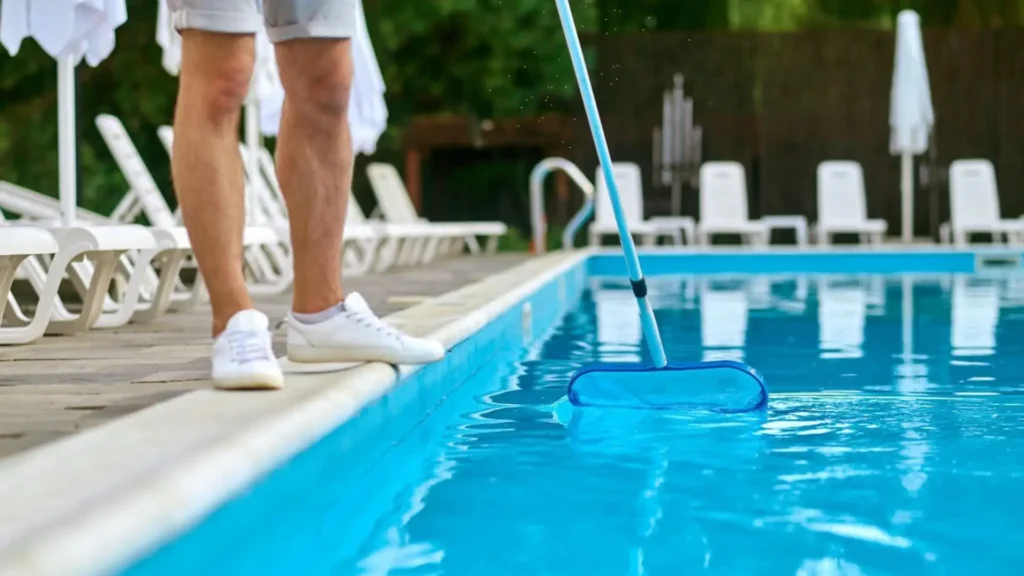Maintaining a pristine swimming pool requires a thorough understanding of pool maintenance techniques. This guide provides essential tips to ensure your pool remains crystal clear and operates efficiently. By incorporating these strategies into your regular routine, you can enjoy a safe and sparkling pool year-round. Read on to discover how to master pool maintenance and keep your swimming area in top condition.
Understanding the Basics of Pool Maintenance
Effective pool maintenance begins with understanding the basics. Regularly checking and balancing the water’s chemical levels is crucial for maintaining a healthy swimming environment. pH levels should be kept between 7.2 and 7.8 to prevent irritation and ensure chlorine efficacy. Additionally, maintaining proper alkalinity and calcium hardness levels helps protect your pool’s surfaces and equipment from damage. Frequent testing using reliable pool testing kits will help you keep these levels in check, ensuring optimal water quality.
The Importance of Skimming and Vacuuming
Routine skimming and vacuuming are vital components of pool maintenance. Skimming the surface daily removes leaves, insects, and other debris, preventing them from sinking and causing stains or clogging the filtration system. Vacuuming the pool floor weekly eliminates dirt and sediment that can harbor bacteria and algae. Investing in a high-quality pool vacuum can make this task easier and more effective, ensuring a clean and inviting swimming environment.
Regular Filter Cleaning and Backwashing
Pool maintenance involves more than just water care; it also requires attention to the filtration system. Regular filter cleaning and backwashing are essential to keep your pool’s water crystal clear. Depending on the type of filter—sand, cartridge, or diatomaceous earth (DE)—the cleaning frequency may vary. Sand filters typically need backwashing every few weeks, while cartridge filters should be cleaned every 2-6 weeks, and DE filters require backwashing every month. Keeping your filters clean ensures efficient water circulation and filtration, preventing cloudy water and equipment strain.
Addressing Algae and Bacteria Growth
Preventing and addressing algae and bacteria growth is a critical aspect of pool maintenance. Regularly shocking the pool with chlorine or non-chlorine shock treatments helps kill off any existing contaminants. Algaecides can also be used as a preventive measure, especially during hot and humid weather when algae growth is more likely. Ensuring proper circulation and filtration, combined with maintaining appropriate chemical levels, minimizes the risk of algae and bacteria, keeping your pool water clear and safe for swimming.
Seasonal Pool Maintenance Tips
Different seasons bring unique challenges to pool maintenance. In the summer, increased pool usage and higher temperatures can lead to rapid chemical imbalances and algae growth. Regularly checking and adjusting chemical levels, increasing filtration times, and maintaining a consistent cleaning schedule are essential during this period. In the fall, removing leaves and preparing the pool for winterization become priorities. Covering the pool and balancing the water chemistry before closing it for the winter help protect it from cold weather damage and ensure an easier opening in the spring.
Learn more:
Professional Pool Maintenance Solutions: Ensuring Optimal Performance and Longevity of Your Pool
Expert Pool Maintenance Services: Keeping Your Swimming Pool Clean and Safe Year-Round

